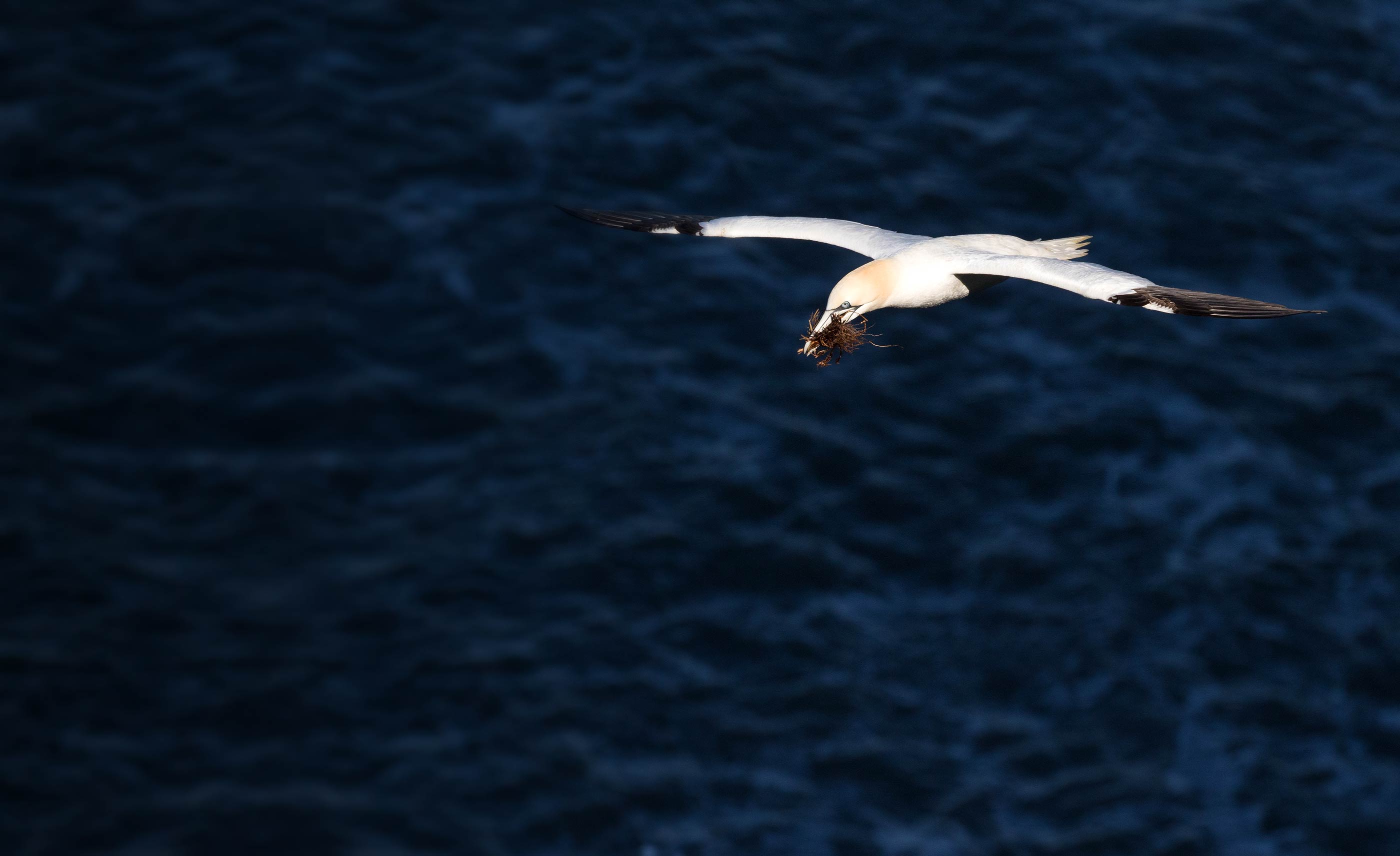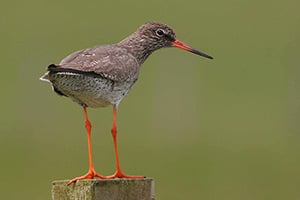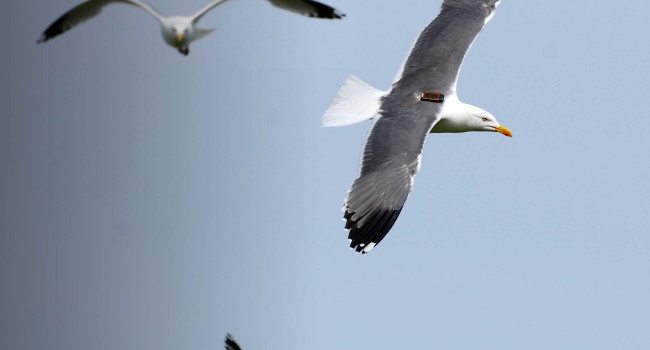Conservation
Redshank by Jill Pakenham
Bird Atlas 2007–11 is a tremendous resource for conservationists. The status assessments and indices of change published in the book provide clear indications of the species of most pressing conservation concern, and how these differ between Britain and Ireland.
Summary data have already formed part of the UK and Republic of Ireland's respective obligations to report on the status of bird species to the European Commission (Article 12 of the Birds Directive) and we envisage that they will help to update lists of species of conservation concern in different countries.
But the underlying data can do so much more. Distribution and abundance data in the UK have been provided to RSPB and soon also to statutory conservation agencies to be used for immediate conservation uses such as protection and management of habitats and species. In the Republic of Ireland, BirdWatch Ireland is planning a programme of conservation work using the priorities identified from the Atlas.
Data on the abundance of breeding waders are helping to improve the targeting of agri-environment schemes in England, Wales and the Republic of Ireland for rapidly disappearing species such as Redshank and Curlew. Maps of distribution and abundance for the Turtle Dove are helping to pinpoint the remaining strongholds for this declining species to both understand why they are declining and work with farmers to slow the decline. Even before the Atlas had finished, provisional data on the distribution of breeding Corn Bunting in central and eastern England were helping to identify farms with important densities of this Red-listed species. These are just the beginning and we envisage many more uses will be made by BTO, BirdWatch Ireland and other conservation organisations and agencies to further bird conservation.







Share this page